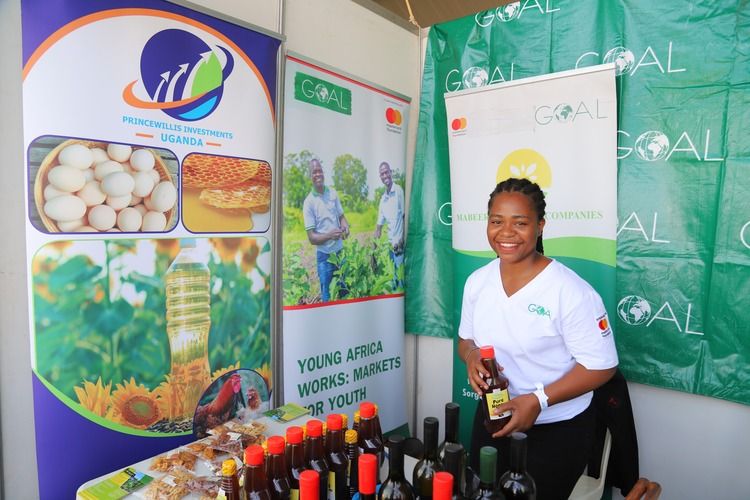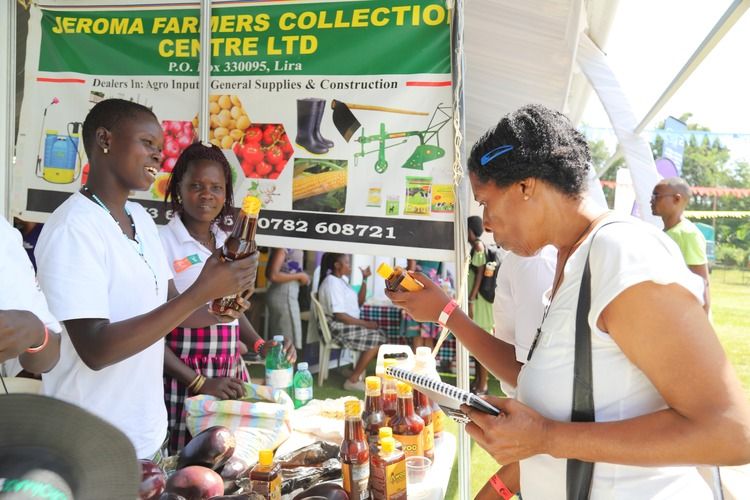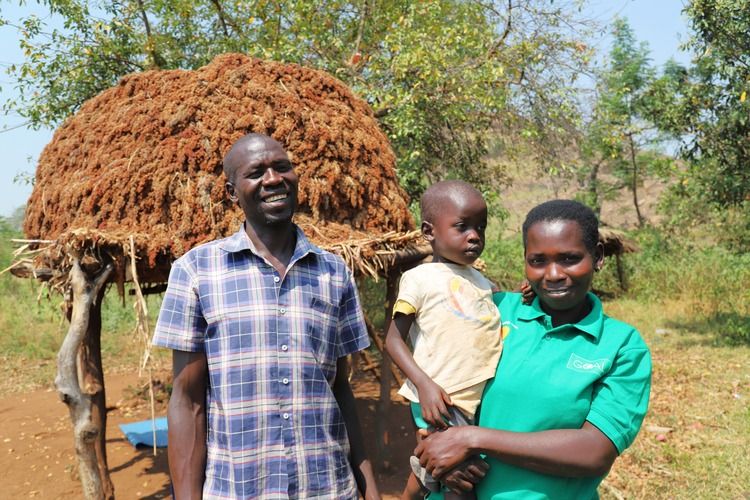 Blogs
Blogs
September 5, 2024 • 4 min read
In Uganda, women constitute more than half of Uganda’s agricultural workforce (estimated at 77% of females engaged in agricultural work compared to 67% of men) and contribute a higher-than-average share of crop labour - yet compared to men, their productivity is low.
Supporting Equitable Market Systems in Uganda
GOAL is committed to supporting equitable market systems in Uganda by breaking the cycle in inequality and exploitation that exists in the country’s agricultural sector.
Notably, women in Uganda are more involved at the production level – for example, clearing the land, planting, weeding, and harvesting. These women are often excluded from the market by men, hence limiting their participation in market systems that could help them increase their incomes.
GOAL Uganda, in partnership with the Mastercard Foundation, is implementing the Young Africa Works in Uganda: Markets for Youth programme. This programme is helping 300,000 young people secure dignified and fulfilling by 2025, in partnership with local civil society organisations and private sector actors.
This includes input dealers, off-takers, financial services providers (banks and MFIs), and skills development institutions, among others. The Markets for Youth programme is now in its fourth year, and 54% of project participants are young women (with an overall target of 70%).
152,500 young women between the ages of 16 and 35 have benefited from improved access to skills training, high-quality agricultural inputs, outputs markets, and formal financial services (savings and loans). These young women also have access to collective bargaining power, which empowers them to negotiate prices and increase their incomes.
Participation in the Markets for Youth programme has also led to increased participation in Voluntary Savings and Loans Associations (VSLAs). Continuous engagement with formal financial service providers is also helping young women adopt good financial management practices.

The Markets for Youth programme is implemented in partnership with local private sector actors in Uganda.
Gender Equality & Social Inclusion
To support the Markets for Youth programme, GOAL Uganda developed and implemented Gender Equality & Social Inclusion (GESI) strategies at the district level. We formed GESI Task Force Committees, including representatives from the private sector, civil society organisations, GOAL’s staff, and local government officials. These committees worked to strengthen the participation of young women in agricultural market systems across 18 districts.
In collaboration with private sector actors and CSO partners, GESI awareness meetings were held with cultural and opinion leaders, stakeholders, and local governments. The GESI taskforce helped spread inclusive market information through youth agents in the community, addressing barriers to women’s participation and decision-making caused by cultural and social norms.
Women’s Day Katale
Earlier this year, the Markets for Youth programme team participated in a Katale Women’s Day event, organised by Private Sector Foundation Uganda (PSFU). Loosely translated as ‘women’s day market’, the ‘Katale’ provides businesswomen and youth a platform to promote their products and services, make sales, network, and connect with potential customers and suppliers.
GOAL Uganda supported 16 young businesswomen from the Karamoja, Acholi and Lango sub-regions to exhibit their skills and enterprises at the Women’s Day Katale, in Jinja, Uganda.
The Katale presented an opportunity for the female youth to exhibit and sell inputs and products (vegetables, honey, seeds), while learning from other businesswomen. The participants also improved their leadership skills and developed the confidence to engage in negotiation with markets actors.
During the event, GOAL focused on raising awareness about the role of women in agriculture and its contribution to food security, economic growth, and development. GOAL representatives also highlighted the role of the private sector in promoting inclusion and amplifying the contributions of women in market systems development.

Markets for Youth participants showcasing their products at the Women’s Day Katale event.
Challenging Gender Norms
One key lesson from the Katale Women’s Day event was the shift in household decision-making dynamics by addressing men’s perceptions of women pursuing business opportunities outside the home. This change has empowered women to take the lead in running micro-businesses, resulting in improved household incomes.
For instance, women from the Karamoja region were able to participate in the three-day Women’s Day Katale event thanks to the programme’s efforts to sensitise spouses and guardians. This approach highlighted the importance of gaining spousal support for young women to seize such opportunities and demonstrate their potential.
Through ongoing collaboration with civil society organisations and private sector partners, GOAL Uganda remains committed to breaking down gender barriers and stereotypes. The organisation takes pride in fostering safe, inclusive environments and is dedicated to building an equitable future for all.
Learn more about the Markets for Youth programme.

Cathy, a female Markets for Youth participant who challenged gender roles in her community to become a successful businesswoman.
